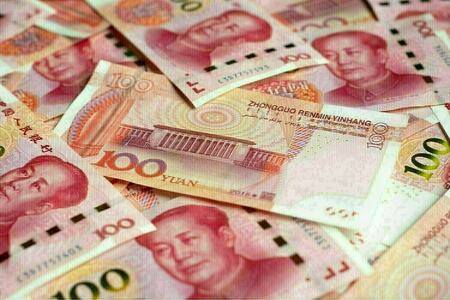Yuan Declines Amid Trade Uncertainty
The Chinese yuan experienced a decline against the US dollar on Friday, influenced by market apprehension regarding US President Donald Trump’s unpredictable tariff strategies. These policies have significantly amplified uncertainty within financial markets as investors approached the weekend.
Global currency markets faced a volatile week, reacting to the evolving trade dynamics between Washington and Beijing, along with Trump’s earlier threats concerning Federal Reserve Chair Jerome Powell.
Trump recently stated that trade negotiations between the US and China were in progress, contradicting previous assertions that discussions had not occurred.
A trader at a foreign bank commented, “Trump’s unpredictability makes it difficult to anticipate future developments.”
As of 0312 GMT, the onshore yuan decreased by 0.09% to reach 7.2963 per dollar, remaining nearly stable for the week. Its offshore counterpart declined by approximately 0.11% in Asian trading, settling at 7.2966.
Before the market opened, the People’s Bank of China (PBOC) established the midpoint rate at 7.2066 per dollar, around which the yuan is permitted to fluctuate within a 2% range. This rate was 832 pips stronger than an estimate of 7.2898.
This month, the PBOC moderately loosened its grip on the currency, enabling official guidance to weaken beyond the 7.2 threshold. Nevertheless, the guidance surpassed market expectations, which traders interpreted as an official effort to stabilize the yuan while allowing some flexibility to mitigate tariff shocks.
The yuan’s value against its major trading partners, as indicated by the CFETS yuan basket index, lingered near a 21-month low of 96.29, highlighting external risks. This data was derived from official sources.
The CFETS index has fallen by about 5.1% since the start of the year, while the yuan has remained relatively stable against the dollar during the same period.
According to Ting Lu, chief China economist at Nomura, “While market attention may have turned slightly to the yuan’s recent weakness against the CFETS basket, we believe this is less of a concern for Beijing.”



Comments (0)
No comments yet. Be the first to comment!
Leave a Comment